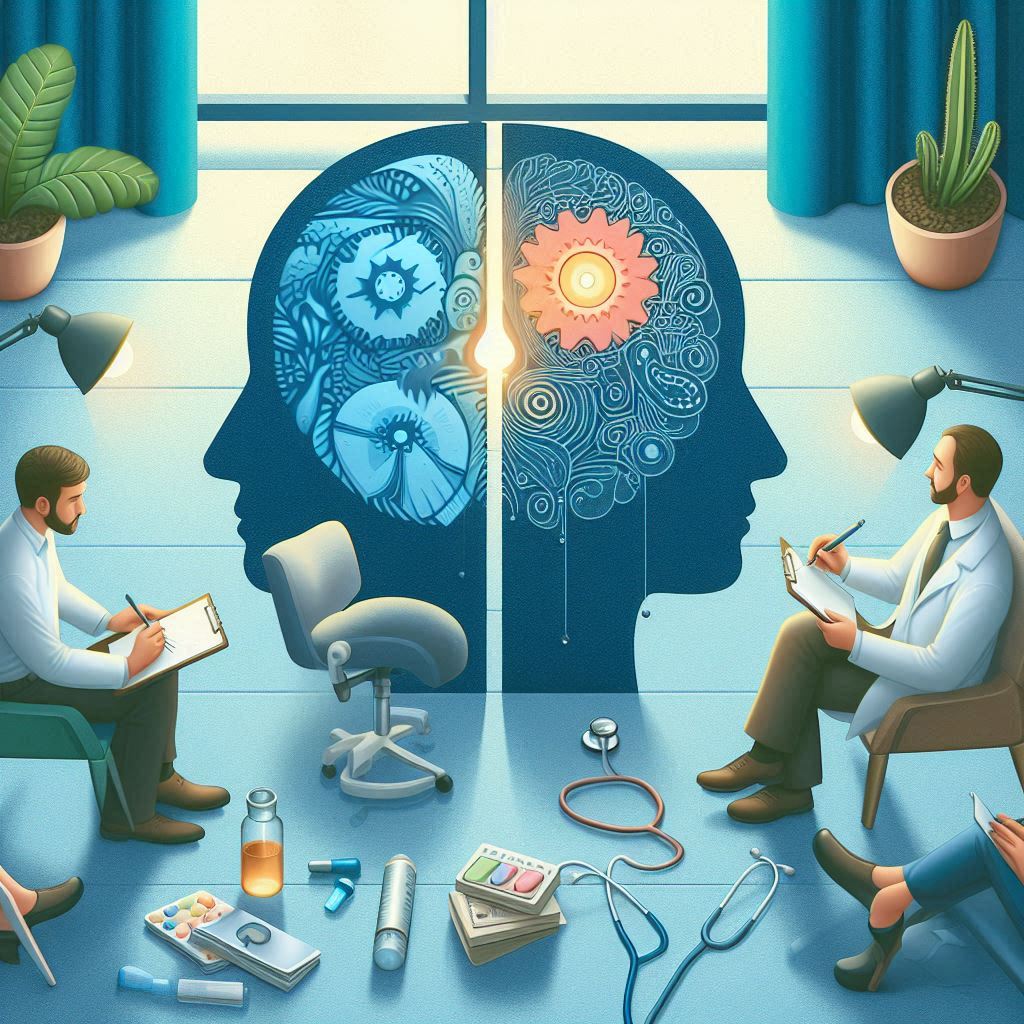Your cart is currently empty!

Understanding Mental Health Professionals: Who Does What?
Posted by:
|
On:
|
Understanding Mental Health Professionals: Who Does What?

Welcome to our mental health blog! Mental health support can come in many forms and knowing where to turn is key. Whether you’re seeking talk therapy or medication management, understanding the different professionals who can help is the first step. Today, we’ll break down the key differences between mental health professionals and the benefits of seeking therapy.
When seeking mental health support, it can be confusing to figure out which professional you need. Psychology and psychiatry are two different fields, and within them, there are many types of professionals who help in different ways. This guide will break it down in simple terms so you can understand the key differences and know who to reach out to for help.
Psychology vs. Psychiatry: What’s the Difference?
The biggest difference between psychology and psychiatry is how they approach mental health treatment.
- Psychologists: These professionals specialize in talk therapy and mental health assessments. They help people understand their thoughts, emotions, and behaviors. Psychologists have advanced degrees (either a PhD or a PsyD) and focus on helping people through counseling and testing but typically do not prescribe medication.
- Psychiatrists: These are medical doctors (MD or DO) who diagnose and treat mental health conditions using medications. Unlike psychologists, psychiatrists can prescribe medicine and focus primarily on managing mental illnesses through medication rather than therapy.
Mental Health Professionals and How They Can Help You
There are different types of mental health professionals who can provide therapy, counseling, or behavioral support. Here’s what they do in a clinical setting:
- PhD/PsyD Psychologists – Psychologists with a PhD or PsyD provide therapy and conduct mental health evaluations. They help with conditions like depression, anxiety, trauma, and other emotional struggles. Some psychologists also conduct testing for ADHD, learning disabilities, and personality disorders.
- Licensed Mental Health Counselors (LMHC) – These therapists provide one-on-one or group counseling for people dealing with anxiety, depression, relationship problems, trauma, and more. They focus on helping people develop coping skills and healthier ways of thinking.
- Licensed Clinical Social Workers (LCSW) – LCSWs provide therapy just like counselors, but they also help clients with social and environmental issues, such as accessing resources, finding support systems, and dealing with life changes.
- Board Certified Behavior Analysts (BCBA) – BCBAs work primarily with individuals who have autism or other developmental conditions. They create behavior plans to help people improve their communication, social, and daily living skills.
- Counselors – This is a general term for professionals who provide talk therapy. Counselors can have different types of training and focus on different issues, such as addiction, grief, family problems, or stress management.
Psychiatry Professionals Explained
If you need medication for a mental health condition, you’ll typically see one of the following professionals:
- Psychiatrists – Medical doctors who specialize in diagnosing mental health conditions and prescribing medication to manage symptoms. Psychiatrists focus on the medical side of mental health and generally do not provide talk therapy.
- Psychiatric-Mental Health Nurse Practitioners (PMHNPs) – These are advanced practice nurses who can diagnose mental health conditions, prescribe medication, and monitor how well treatments are working. They often work alongside psychiatrists to help manage patients’ care.
Final Thoughts
Grasping the differences between these mental health professionals can help you find the right kind of support. For those seeking therapy, a psychologist, counselor, or social worker may be a good fit. On the other hand, if medication seems necessary, consulting with a psychiatrist or a PMHNP is likely the best option.
If you’re unsure where to begin, reaching out to a therapist or psychologist can provide valuable guidance—they can assess your needs and point you in the right direction.
For those in Florida, you can schedule a virtual session with a licensed psychotherapist at Ellipsis Counseling Center. Our online therapy services provide convenient and confidential support to help you navigate life’s challenges.
For more information, check out reliable sources like the American Psychological Association (APA) and the APA Dictionary of Psychology to learn more about mental health professionals and what they do.
Reducing the Stigma Around Counseling and Psychiatric Care
It’s important to break the stigma surrounding both therapy and psychiatric care. Seeking help from a counselor, psychiatrist, or PMHNP isn’t a sign of weakness but a proactive step toward improving your well-being. Mental health is just as important as physical health, and getting the right support can make a significant difference in leading a balanced, fulfilling life.
References
Recommended Reads:
- “Why Therapy Works: Using Our Minds to Change Our Brains” by Louis Cozolino
- This book breaks down the science behind psychotherapy, explaining how talk therapy can lead to real changes in the brain. It’s a great read for those interested in understanding the neuroscience behind therapy and how it can help improve mental health.
If you are ready to take that step, consider reaching out to professionals who can guide you through your journey. Whether through Ellipsis Counseling Center or another resource, help is always within reach.
Thank you for joining us on this journey to promote mental well-being and break the stigma. Stay tuned for more insights, tips, and stories on our mental health blog, and don’t forget to check out our Podcast and YouTube channel for deeper discussions and additional resources!
If you have a personal journey related to this topic that you would like to share, please feel free to email us at [email protected]. Let us know if you want to share it anonymously or with your name.
